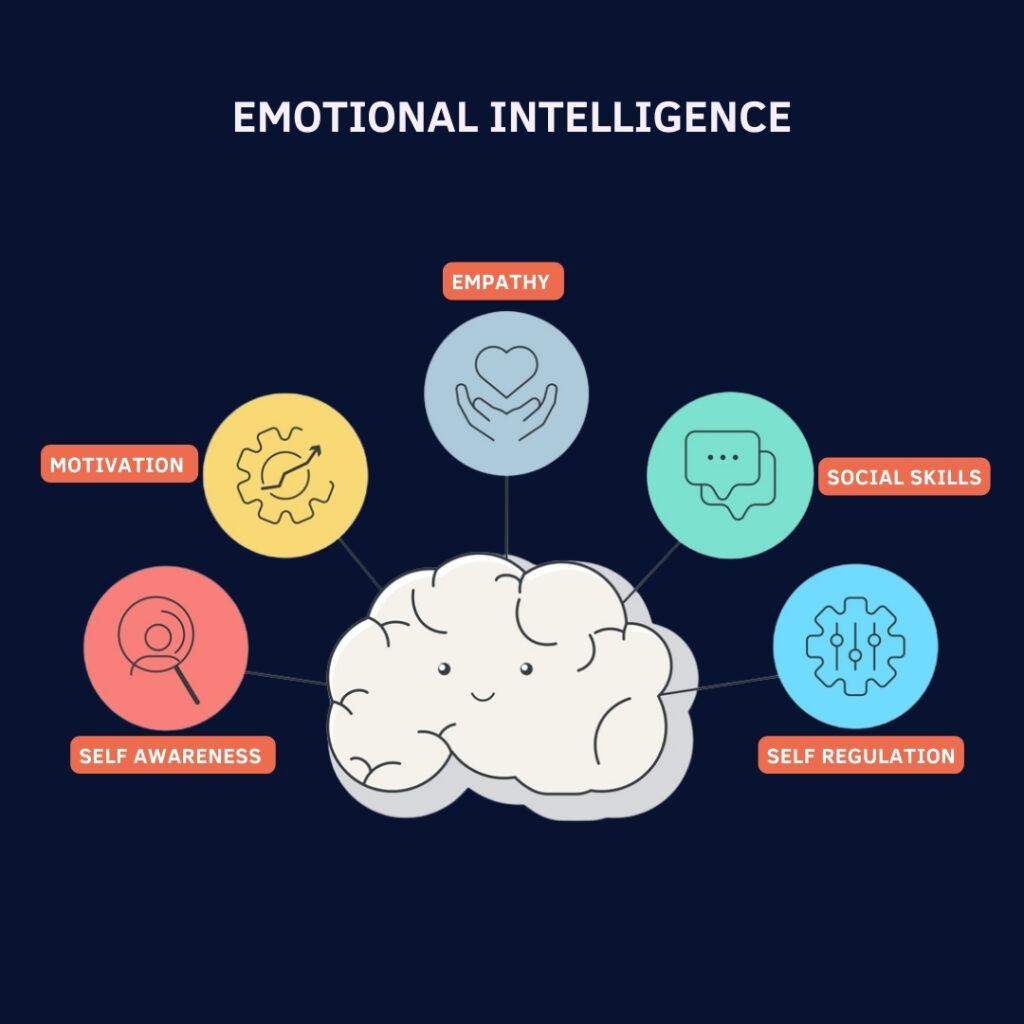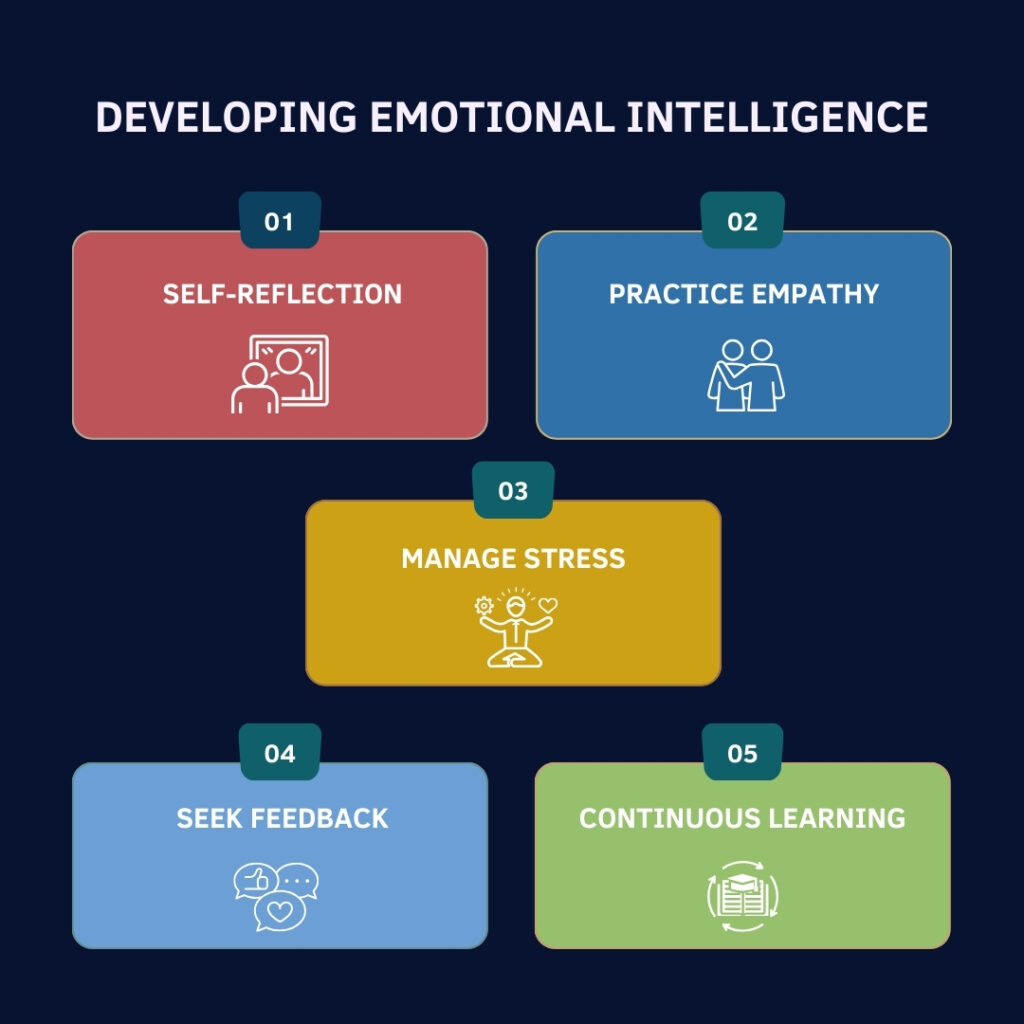Emotional intelligence is a crucial aspect of our personal and professional lives. It refers to the ability to understand, manage, and effectively express our emotions, as well as the ability to understand and empathize with the emotions of others. In recent years, the importance of emotional intelligence has gained significant recognition, as it has been found to be a key predictor of success in various areas of life.
Understanding Emotional Intelligence
Emotional intelligence consists of several key components.
1. Self-Awareness: It involves recognizing and understanding our own emotions and how they affect our thoughts, behaviors, and interactions with others. Self-awareness allows us to identify our strengths and weaknesses, and to better understand our personal strengths and limitations.
2. Self-Regulation: This involves the ability to manage and control our emotions, particularly in challenging or stressful situations. People with high levels of self-regulation can effectively manage their impulses and respond to situations in a calm and rational manner. This skill is particularly important in professional environments, where the ability to remain composed under pressure is highly valued.
3. Empathy: Empathy is the ability to understand and share the feelings of others. It involves being able to put oneself in another person’s shoes and see things from their perspective. Empathy allows us to build strong relationships, resolve conflicts, and show compassion towards others.
4. Social Skills : They are also a key component of emotional intelligence. This refers to the ability to effectively communicate and interact with others. People with strong social skills are good listeners, effective communicators, and are adept at building and maintaining relationships. They are able to navigate social situations with ease, and are skilled at resolving conflicts and working collaboratively with others.

Benefits of Emotional Intelligence
Developing and honing emotional intelligence skills can have numerous benefits in various aspects of our lives. In the workplace, individuals with high emotional intelligence are often seen as effective leaders and managers. They are better able to inspire and motivate their teams, provide constructive feedback, and resolve conflicts in a positive and productive manner.
Emotional intelligence is also closely linked to success in personal relationships. People with high emotional intelligence are better able to understand and meet the needs of their partners, friends, and family members. They are skilled at recognizing and managing their own emotions, which enables them to navigate relationship challenges with greater ease.
Furthermore, emotional intelligence has been shown to have a positive impact on mental health and overall well-being. People with high levels of emotional intelligence tend to experience lower levels of stress, anxiety, and depression. They have a greater ability to regulate their emotions and cope with challenging situations effectively.
Developing Emotional Intelligence
The good news is that emotional intelligence is not a fixed trait, but rather a skill that can be developed and improved over time. Here are some strategies that can help enhance emotional intelligence:
Self-reflection: Take time to reflect on your own emotions, thoughts, and behaviors. Journaling can be a helpful tool in gaining self-awareness and understanding patterns.
Practice empathy: Make an effort to understand and empathize with the emotions and perspectives of others. Actively listen and show genuine interest in their experiences.
Manage stress: Develop healthy coping mechanisms to manage stress and regulate your emotions. This could include practices such as mindfulness, exercise, or engaging in hobbies that bring you joy.
Seek feedback: Regularly seek feedback from trusted individuals about your communication and interpersonal skills. This can help identify areas for improvement and provide opportunities for growth.
Continuous learning: Stay open to learning and growing in your emotional intelligence skills. Read books, attend workshops or seminars, and engage in conversations that broaden your understanding and knowledge.

Conclusion
Emotional intelligence plays a vital role in our personal and professional lives. It enhances our ability to understand, manage, and express our emotions, as well as empathize with others. By developing and honing our emotional intelligence skills, we can improve our relationships, navigate challenging situations more effectively, and enhance our overall well-being. So, let’s commit to investing in our emotional intelligence and watch as it positively impacts every aspect of our lives.





Leave a Reply